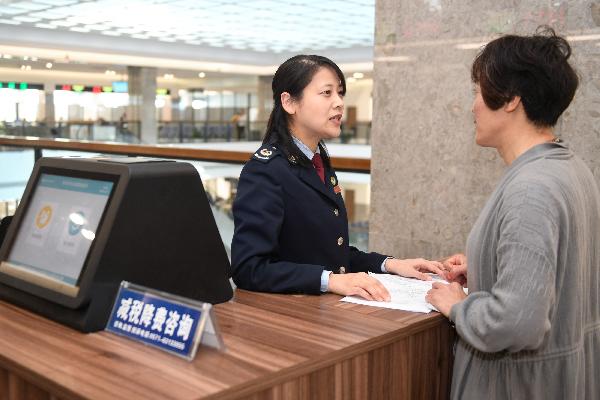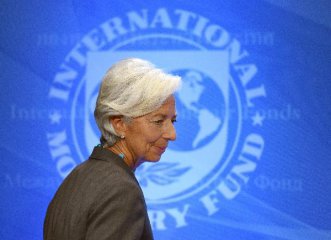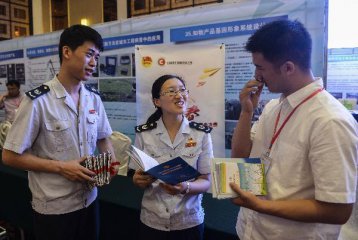
BEIJING, April 4 (Xinhua) -- Chinese entrepreneurs from all walks of life were more upbeat following the government's sustained efforts to lower the corporate burden.
"The implementation of larger scales of tax and fee cuts help improve enterprise profits, alleviate capital pressure, and solidify our confidence in business development," said Dai Jishuang, chairman of the Shenyang Blower Works Group Corporation, at a symposium hosted by the State Taxation Administration earlier this week.
Following colossal tax and fee cuts of around 1.3 trillion yuan (about 194 billion U.S. dollars) in 2018, China will reduce the tax burdens and social insurance contributions of enterprises by nearly 2 trillion yuan in 2019.
On April 1, the country started to reduce the current value-added tax (VAT) rate of 16 percent for manufacturing and other industries to 13 percent. Starting from May 1, the government will also cut the share of enterprise contributions to urban workers' basic old-age insurance from 20 percent to 16 percent.
The new VAT cut policy will save 23.11 million yuan for the Shenyang Blower Works Group Corporation in 2019, according to Dai.
For China Delixi Holding Group Co. Ltd., this year's tax cuts will amount to 111 million yuan. "This will enable us to invest more in scientific research and development, promoting the enterprise's competence," said Hu Chengzhong, chairman of the board of directors and CEO of China Delixi Holding Group.
"A universal tax cut will greatly ease the tax burden of companies in purchasing fixed assets like machinery equipment and save costs for equipment manufacturers, resulting in more room for investment," said Bai Jingming, vice president of the Chinese Academy of Fiscal Sciences.
The massive corporate tax cuts this year showcased the central government's efforts to inject more energy into economic development and to make sure market entities receive benefits, which will help stabilize market expectations of the economy, according to Bai.
Bai believes the move will unleash Chinese people's unlimited potential in innovation and creation and boost the nation's high-quality development.
"The nationwide tax cut policy is a guarantee of innovation-driven development," said Chen Yanshun, chairman of the executive committee and CEO of BOE Technology Group Co. Ltd.
The tax cut policy will help the BOE Technology Group lower VAT expenditure by 3.7 billion yuan this year, according to Chen.
"The BOE Technology Group will put the tax cut bonus into scientific research and development and make a greater contribution to the country's strategic emerging industries," said Chen.
The tax cut bonus will be used for research and production, and thus boost production efficiency and profitability. After forming a virtuous circle, enterprises could contribute more to the country's tax income, according to Zhuang Dan, president of Yangtze Optical Fibre and Cable Joint Stock Limited Company.
ActBlue Co. Ltd., an environmentally friendly technological innovative enterprise founded in 2009, will save more than 7 million yuan in 2019 after the implementation of lower VAT rates on April 1, while reducing social insurance costs by 820,000 yuan when the new policy goes into effect on May 1.
However, ActBlue chairman Liu Yi wants more.
"China's environmental protection industry is still in the beginning stage and tax preferential policies are needed for industrial development. Despite the government's existing efforts in this respect, we need more," said Liu.
The major target of such tax cuts in 2019 would be small and micro companies, which provide the majority of jobs, according to Bai, showing a clear pro-employment policy tendency.
Policymakers attach great importance to employment because it is an area that directly affects everyday life and determines the health and prospects of the economy.
China's economy, the second largest in the world, expanded 6.6 percent to exceed 90 trillion yuan in 2018. The growth target for 2019 was set at 6-6.5 percent.





















Latest comments